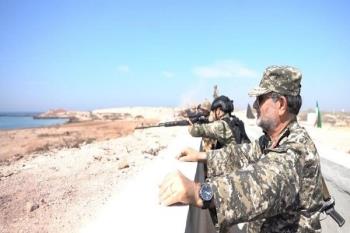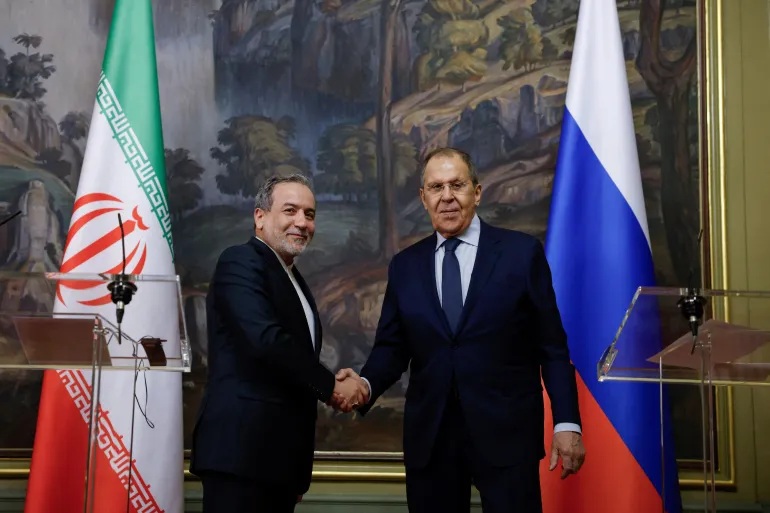Alwaght- In the middle of the indirect Iranian-American talks and in the one-week interval between the first and second rounds of these talks, Iranian foreign ministry has had hectic days of diplomatic meetings to build preparation for the second round in Rome.
On the list of activities of the foreign ministry, the sudden visit to Moscow of the Iranian Foreign Minister Abbas Araghchi grabbed the world media attention, with each outlet trying to assess the behind the scenes of the Russian role in these negotiations with regard to the stances of the two sides and the main mission of the Iranian delegation which is the delivery of a message from Iranian Supreme Leader Ayatollah Sayyed Ali Khamenei to the Russian President Vladimir Putin.
This issue has gained importance especially since Trump's envoy to the Middle East Steve Witkoff before the second round visited Moscow, showing that amid Trump's deliberate ignorance of European signatories of the 2015 nuclear deal, both the US and Iran have their eyes on the Russian role.
Araghchi's Moscow visit agenda
Although since the announcement of Araghchi's Moscow visit plan the nuclear negotiations overshadowed the media analyses on the aims of the visit, according to Iranian-Russian officials the Rome negotiations were not the only focus of Moscow talks and the two countries discussed their growing cooperation for implementation of the "Comprehensive Strategic Partnership Agreement" between Tehran and Moscow. Upon his arrival, Araghchi said that his visit had several goals, on top of them handing over a message of the Leader to the Russian president.
"Bilateral relations encompass a variety of issues, each time with many topics to discuss and follow up on," he maintained., adding that he would discuss West Asia and its developments in his meetings with Russian officials.
With these positions of the top Iranian diplomat and various reports of the intensity of consultations held on the issue of nuclear negotiations during this trip, it can be understood that the Islamic Republic of Iran is pursuing consultation and coordination, and possibly welcoming Moscow's facilitating role in the nuclear negotiations process, under the fundamental policy of expanding cooperation and strategic alliance within the framework of the comprehensive strategic partnership agreement, and the will to maintain and strengthen the alliance with Russia in the Iranian foreign policy is unwavering.
"Yesterday, I had a very good and long meeting with Mr. Putin and submitted a written message from the Supreme Leader to him. This was both a message to Mr. Putin and a message to the whole world that Iran considers Russia its main and strategic partner and consults on important issues," Araghchi told media after his Moscow visit.
But regardless of the general atmosphere of the trip which bears witness to the unbreakable Iranian-Russian alliance, the clear media positions of the two sides showed that Tehran is not unlikely to expect Russia to play a more tangible role for advancing the talks and eliminating the big challenges ahead.
“We hope and expect Russia to continue its supportive role in any new agreement,” Araghchi said in a joint news conference with his Russian counterpart, Sergei Lavrov. Lavrov also announced Russia’s readiness to “mediate and assist in the nuclear negotiations.” He said, “We are ready to assist, mediate, and play any role that is useful from Iran’s perspective and acceptable to the United States.”
Meanwhile, in another signal from Moscow, the Kremlin spokesman Dmitry Peskov told reporters: “The Russian Federation is ready to do everything in its power to help resolve the situation through political and diplomatic means.”
His comments came after he suggested in an interview with the state-run RIA Novosti news agency that Russia and China could serve as joint guarantors of any future agreement between Tehran and Washington.
Russia, facing the Ukraine crisis and Western sanctions, is trying to strengthen its diplomatic position in the international environment by playing a role in sensitive cases such as Iran.
Moscow’s policy is not only an attempt to gain an advantage in geopolitical equations, but also part of its broader economic resistance to the West.
Certainly, the role of Beijing and Moscow, as permanent members of the Security Council, in supporting Iran’s peaceful nuclear rights and rejecting the US’s overbearing and unrealistic positions, could help strengthen Iran’s stance at the negotiating table and neutralize the media-propaganda war in the negotiations. For example, while the US side’s positions have been very contradictory, overbearing, threatening, and opaque a week after the first round of talks in Oman, Russia and China have supported Iran’s position that the talks should be purely on nuclear case.
Lavrov had stated earlier this year: “You cannot ask Iran to reduce its influence in a region where even the smallest countries are trying to expand their influence.”
China has also adopted positions close to Russia in recent days, the spokesman for the country's foreign ministry, said that "by unilaterally withdrawing from the Joint Comprehensive Plan of Action (JCPOA), the United States should take responsibility for the current impasse, show political honesty, and abandon the use of force and maximum pressure tactics."
Iran has repeatedly made it clear that it will not negotiate with any power on the country's conventional defense and military capabilities including missiles and its continued support for its regional allies in the Axis of Resistance, and that the negotiations should solely focus on the nuclear issue and the lifting of sanctions. Iranian FM pointed out in an April 8 article published by the Washington Post that the demand for the dismantling of all nuclear facilities is utter fantasy.
In the current conditions, it seems that Iran's multifaceted diplomacy with its focus on Russia and China can open new path in the talks with the US. In this regard, we should not underestimate Putin's personal capabilities. The Russian leader may use his considerable influence over Trump to contribute to a Tehran-Washington deal. However, success of this role depends on a variety of factors including the US agreement, regional developments, and the Russian capability to convince Washington.
In summary, Araghchi's Moscow visit demonstrated that Iran is seeking coordination with its allies in the nuclear negotiations. Russia with its mediation is both pursuing de-escalation and its geopolitical interests.



























